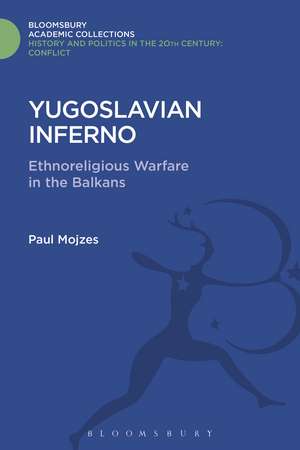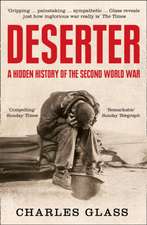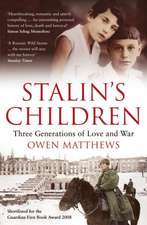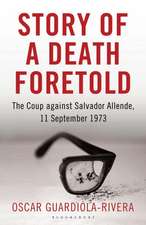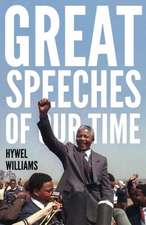Yugoslavian Inferno: Ethnoreligious Warfare in the Balkans: History and Politics in the 20th Century: Bloomsbury Academic
Autor Paul Mojzesen Limba Engleză Hardback – 5 oct 2016
Din seria History and Politics in the 20th Century: Bloomsbury Academic
- 30%
 Preț: 656.39 lei
Preț: 656.39 lei - 30%
 Preț: 658.35 lei
Preț: 658.35 lei - 30%
 Preț: 655.58 lei
Preț: 655.58 lei - 30%
 Preț: 660.40 lei
Preț: 660.40 lei - 30%
 Preț: 656.81 lei
Preț: 656.81 lei - 30%
 Preț: 656.73 lei
Preț: 656.73 lei - 30%
 Preț: 656.32 lei
Preț: 656.32 lei - 30%
 Preț: 657.22 lei
Preț: 657.22 lei - 30%
 Preț: 656.81 lei
Preț: 656.81 lei - 30%
 Preț: 659.57 lei
Preț: 659.57 lei - 30%
 Preț: 656.00 lei
Preț: 656.00 lei - 30%
 Preț: 661.46 lei
Preț: 661.46 lei - 24%
 Preț: 655.16 lei
Preț: 655.16 lei - 30%
 Preț: 659.57 lei
Preț: 659.57 lei - 30%
 Preț: 659.67 lei
Preț: 659.67 lei - 30%
 Preț: 657.94 lei
Preț: 657.94 lei - 30%
 Preț: 655.58 lei
Preț: 655.58 lei - 30%
 Preț: 657.22 lei
Preț: 657.22 lei - 30%
 Preț: 655.16 lei
Preț: 655.16 lei - 30%
 Preț: 659.57 lei
Preț: 659.57 lei - 30%
 Preț: 656.39 lei
Preț: 656.39 lei - 14%
 Preț: 661.53 lei
Preț: 661.53 lei - 30%
 Preț: 658.35 lei
Preț: 658.35 lei - 30%
 Preț: 656.81 lei
Preț: 656.81 lei - 30%
 Preț: 656.39 lei
Preț: 656.39 lei - 30%
 Preț: 656.73 lei
Preț: 656.73 lei - 30%
 Preț: 659.57 lei
Preț: 659.57 lei - 30%
 Preț: 659.17 lei
Preț: 659.17 lei - 30%
 Preț: 666.26 lei
Preț: 666.26 lei - 30%
 Preț: 656.81 lei
Preț: 656.81 lei - 30%
 Preț: 656.39 lei
Preț: 656.39 lei - 29%
 Preț: 671.50 lei
Preț: 671.50 lei - 33%
 Preț: 3881.65 lei
Preț: 3881.65 lei - 33%
 Preț: 3891.97 lei
Preț: 3891.97 lei
Preț: 657.94 lei
Preț vechi: 943.99 lei
-30% Nou
Puncte Express: 987
Preț estimativ în valută:
125.91€ • 130.97$ • 103.95£
125.91€ • 130.97$ • 103.95£
Carte tipărită la comandă
Livrare economică 14-28 aprilie
Preluare comenzi: 021 569.72.76
Specificații
ISBN-13: 9781474288378
ISBN-10: 1474288375
Pagini: 288
Dimensiuni: 156 x 234 x 18 mm
Greutate: 0.58 kg
Editura: Bloomsbury Publishing
Colecția Bloomsbury Academic
Seria History and Politics in the 20th Century: Bloomsbury Academic
Locul publicării:London, United Kingdom
ISBN-10: 1474288375
Pagini: 288
Dimensiuni: 156 x 234 x 18 mm
Greutate: 0.58 kg
Editura: Bloomsbury Publishing
Colecția Bloomsbury Academic
Seria History and Politics in the 20th Century: Bloomsbury Academic
Locul publicării:London, United Kingdom
Caracteristici
Draws on the wealth of the backlists of The Athlone Press, Mansell, Pinter and Continuum
Notă biografică
Paul Mojzes is Chair of the Religious Studies and Humanities Department at Rosemont College, Pennsylvania, USA.
Cuprins
MapsGuide to PronunciationIntroduction1. NEVER AGAIN? Anticipating War - The War Arrives - What is This Warfare About?2. MYTHO-HYSTORYSerbs - Croats - Slovenes - Bosnians and Herzegovinians - Macedonians - Montenegrins - The Mythic Element - Conclusions3. THE DESTRUCTIVE USE OF MEMORYThe Heritage of Horror - Revenge and Spite - Propaganda: Good Guys vs. Bad Guys - Lies, Lies, Lies - The Return of Primitivism - The Locksmith Was Better4. LAST CHANCE FOR A UNIFIED YUGOSLAVIA5. THE UNRESOLVED NATIONAL QUESTIONThe Structural Problem - The National Question on the First Yugoslavia - The Titoist Approach to the National Question - The Post-Tito Resurrection of National Conflicts - Nationalism Breaks Up the Communist Party of Yugoslavia - Ethnic Nationalism as the New Order - The Impact of Ethnic Nationalism6. CIVIL WAR OR WAR BETWEEN COUNTRIES?Alternate Perceptions of the Conflict - Overview of the Process of War-Making - Preliminary Skirmishes in Kosovo and Croatia - War in Slovenia: A Fizzled 'Blitzkrieg' - War in Croatia: The First Serb-Croat War - War in Bosnia and Herzegovina: The Bosnian Pot Boils Over - War in Serbia? Bloodiest Yet? - A Wider Balkan War? - Conclusion7. THE RELIGIOUS COMPONENT IN THE WARSContribution of Religious Communities toward Hatred and War - The Roman Catholic Contribution to Nationalism - The Serbian Orthodox Role in the Disintegration of Yugoslavia - Bosnian Muslims: Ethnoreligious Ambiguity - Macedonian Orthodox Separatism - Protestants: Inability to Withstand War Propaganda - The Reconciling Role of Religious Communities - Conclusion8. WHO OR WHAT IS TO BLAME?The Unsolved National Question - Politicians - Intellectuals - The Yugoslav Army - War Criminals - The Press and Media - Religious Leadership - Collective Responsibility - The International Community - To Sum Up9. WILL UN SANCTIONS TOPPLE THE REGIME IN YUGOSLAVIA? 10. SLOVENIA AND MACEDONIA: A STUDY IN CONTRASTSThe Slovenian Secession and War - Economic Worries - The Religious Factor in Slovenia - The Macedonian Negotiated Secession - The Role of Religion in Macedonia - The Economic Afflictions - Conclusion11. CROATIA: NEITHER WAR NOR PEACE12. ENDING THE WARDomestic Alternatives to End the War - Foreign Military Intervention - My Proposal to End the War13. AND THE WAR GOES ONSelect BibliographyIndex
